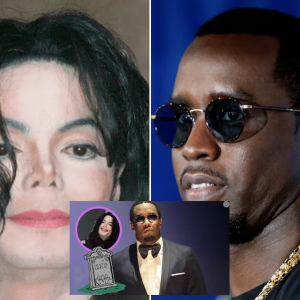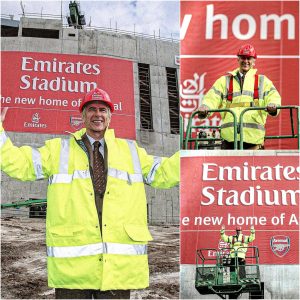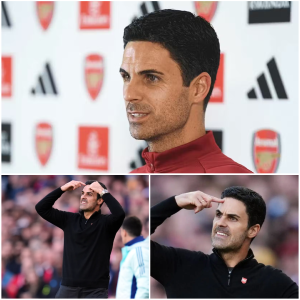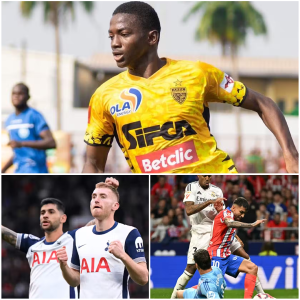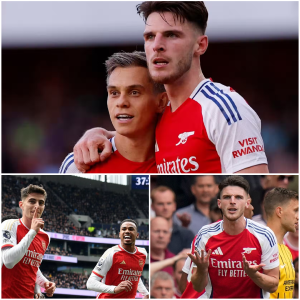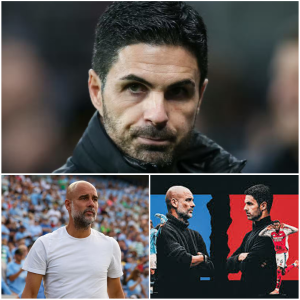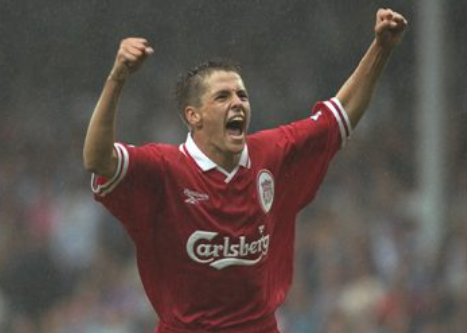
Michael James Owen, an “atypical” striker, an English prodigy, a flamboyant striker who makes the whole world unable to stop watching his speedy runs across the English fields. Michael Owen played for Liverpool and became a part of the Merseyside team’s history, the only English player in more than three decades to win the “Golden Ball” title. But Michael Owen’s career can only be summed up with the sentence: “It blooms early and fades quickly” .
Photo: Planet Football
Michael Owen was born on December 14, 1979 in Chester, a city near the Welsh border, UK, as the fourth child of Mrs. Jeanette and Mr. Terry Owen. Mr. Terry was the one who guided his son to football. Through the eyes of a professional footballer, Owen’s father soon discovered his son’s promise in a football career when he was just seven years old. As an Everton fan, Owen decided to go to Hawarden to attend primary school.
At the age of 8, Michael Owen was selected for the U-11 team of Deeside Area Primary School and there he surprised scouts across England with the talent of a prodigy. At the age of 9, Michael Owen was given the captain’s armband and exactly one year later he made Ian Rush’s 20-year record go into the past. Owen scored 97 goals in just one season, exceeding Ian Rush’s old number by 25 goals. Owen continued to debut for the Mold Alexandra youth team, scoring 34 goals in 24 appearances in his first season.

Photo: Mirror
Michael Owen left Deeside to study at Hawarden High School, where he was signed by the school’s club. Big names in England began sending people to learn about young talent Owen, among them Manchester United, Chelsea and Arsenal. However, Liverpool was both faster and more skilled when Steve Heighway wrote a private open letter to Michael Owen about his invitation to join The Kop. Owen’s father, after receiving the letter sent to his son, was happy and Owen was immediately sent to Liverpool’s youth team.
Owen was introduced by the club to the FA’s gifted academy at Lilleshall, then joined the England U-15 team, playing and setting many records for the team. At the age of 16, Michael Owen joined Liverpool’s youth team and played alongside teammates who had mostly turned 18. He contributed greatly to helping the youth team win the FA championship trophy and became a future star himself. of British soccer. At the age of 17, Owen signed a professional contract with Liverpool on his birthday. Coach Ted Powell affirmed that Owen is the best talent among his contemporaries alongside Paul Scholes, David Beckham or Robbie Fowler.
On 6 May 1997, Michael Owen scored his first goal for the club against Wimbledon. He achieved great advancement when he had the opportunity to replace the position of main striker Robbie Fowler; Owen consecutively won the title “Premier League Golden Boot” and the “Best Young Player of the Year” award. Besides, the British “Prodigy” also reached the top 3 running for “Best Player of the Year” with Dennis Bergkamp and Tony Adams. In his first three seasons playing for Liverpool, Owen scored 52 goals – an extremely impressive number for a young player.
In the 2000/01 season, Michael Owen returned strongly after a period of injury and helped Liverpool escape a 6-year titleless drought with a treble of League Cup, FA Cup and UEFA Cup. Michael Owen is also the second English player to receive the title “Best Player in Europe” since Kevin Keegan was awarded in 1979. On December 29, 2001, Owen scored his 100th goal. for the “Red Brigade” in the match against West Ham United. Anfield’s board of directors decided to extend the contract with the team’s main striker with a salary of up to 70,000 pounds a week – putting Owen on the list of the best earning players at that time.

Photo: 101greatgoals
The powerful president of “Los Blancos” at that time, Florentino Perez, publicly announced his intention to pursue Michael Owen to build a Galactico 1.0 team with the motto : “The best players must play for Real Madrid!” . Gerard Houllier – manager of The Kop – responded humorously and sarcastically : “They can buy Ronaldo (de Lima) but cannot buy Michael Owen. Their money can only buy Owen’s left leg, but he’s not going anywhere.” . However, Liverpool’s long slide in the Premier League after that and continuous injuries caused Michael Owen’s career to take a turn towards Spain.
Owen joined Real Madrid on 13 August 2004 for a fee of £8 million and Antonio Nunez went to Liverpool in the opposite direction according to the contract agreement. Owen reunited with his England teammate David Beckham, and he played alongside Ronaldo, Zinedine Zidane, Raul and Luis Figo. At the Bernabeu, Owen found it difficult to compete for an official position and often played as a substitute, and Owen’s most memorable memory in Madrid was probably his first goal for the club against Dynamo Kiev. In the summer of 2005, Robinho and Baptista landed at the Bernabeu, Michael Owen quietly left Real Madrid to return to England to play for Newcastle United.

Photo: 4231.vn
England’s former “prodigy” is no longer playing brilliantly when at New Castle he repeatedly injured his instep, ligaments and ankles. Michael Owen’s career at St James’ Park is like the death of great stars in the universe – burning bright one last time before fading away forever. Owen played for the team 71 matches, scoring 26 goals before moving to Manchester United at the beginning of the 2009/10 season. At Old Trafford, Michael Owen won the last two major titles of his career, the Premier League and the British Super Cup, and left the team on May 17, 2012 to go to Stoke City.
Michael Owen came to the new club with the intention of ending his playing career here. A one-year contract was quickly signed, Owen played only 8 times, scored 1 goal and announced his retirement when the 2012/13 season ended. The British “prodigy” has now become a victim of injuries, putting an end to a career that could have become many times greater.

Photo: Fifa.com
To outsiders, Michael Owen may not be worthy of the name legendary, but to the British themselves, Owen is a part of the golden generation of football in this country in the 90s. Michael Owen played for the “Three Lions” 89 matches, scored 40 goals, and was named on the list of all-time top scorers alongside Wayne Rooney, Bobby Charlton, Gary Lineker and Jimmy Graves. Like teammates like Steven Gerrard, David Beckham or Frank Lampard, Owen did not win any international titles in the new era.
Michael Owen once emerged with a bright and promising future but then ended in a way that no one expected. Owen could have been greater, scored more goals, won more trophies and played longer. Owen is an exemplary striker, knows how to score goals, knows how to stir up the atmosphere in the stands and also knows how to make those who love him feel sad every time he talks about it!






